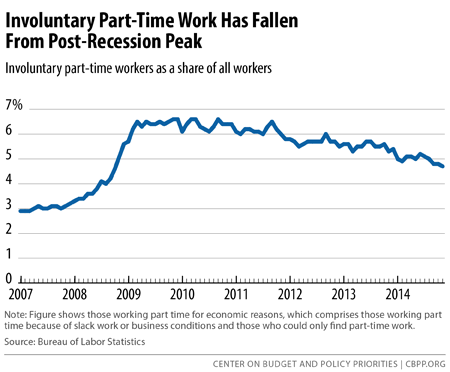off the charts
POLICY INSIGHT
BEYOND THE NUMBERS
BEYOND THE NUMBERS
House Bill Raising Health Reform Threshold to 40 Hours Would Affect More Workers
Receive the latest news and reports from the Center
House leaders have scheduled a vote this week to raise the threshold for health reform’s employer mandate from 30 hours of work per week to 40 hours. House Speaker John Boehner and Senate Majority Leader Mitch McConnell call the 30-hour threshold “an arbitrary and destructive government barrier to more hours” of work and propose raising it to 40 hours. In reality, as our newly updated paper explains, that step would lead to fewer hours of work for employees and more part-time work — the exact opposite of what their rhetoric about “restoring” the 40-hour work week implies.
Health reform requires employers with at least 50 full-time-equivalent workers to offer health coverage to employees who work 30 or more hours a week or pay a penalty. Recent data provide scant evidence that the 30-hour requirement is causing a significant shift toward part-time work, contrary to the claims of critics. The number of part-time workers who would rather be working full time is shrinking, as the figure shows. And there’s every reason to believe that health reform will have only a small effect on the part-time share of total employment.

More importantly, raising the threshold from 30 hours a week to 40 hours would make a shift toward part-time employment much more likely — not less so. That’s because only a small share of workers today — 7 percent — work 30 to 34 hours a week and thus are most at risk of having their hours cut below health reform’s threshold. In comparison, 44 percent of employees work 40 hours a week, and another several percent work 41 to 44 hours a week. Thus, raising the threshold to 40 hours would place many more workers at risk of having their hours reduced.
In short, it’s the House Republican bill, not health reform, that threatens the traditional 40-hour work week the bill’s sponsors say they want to protect.